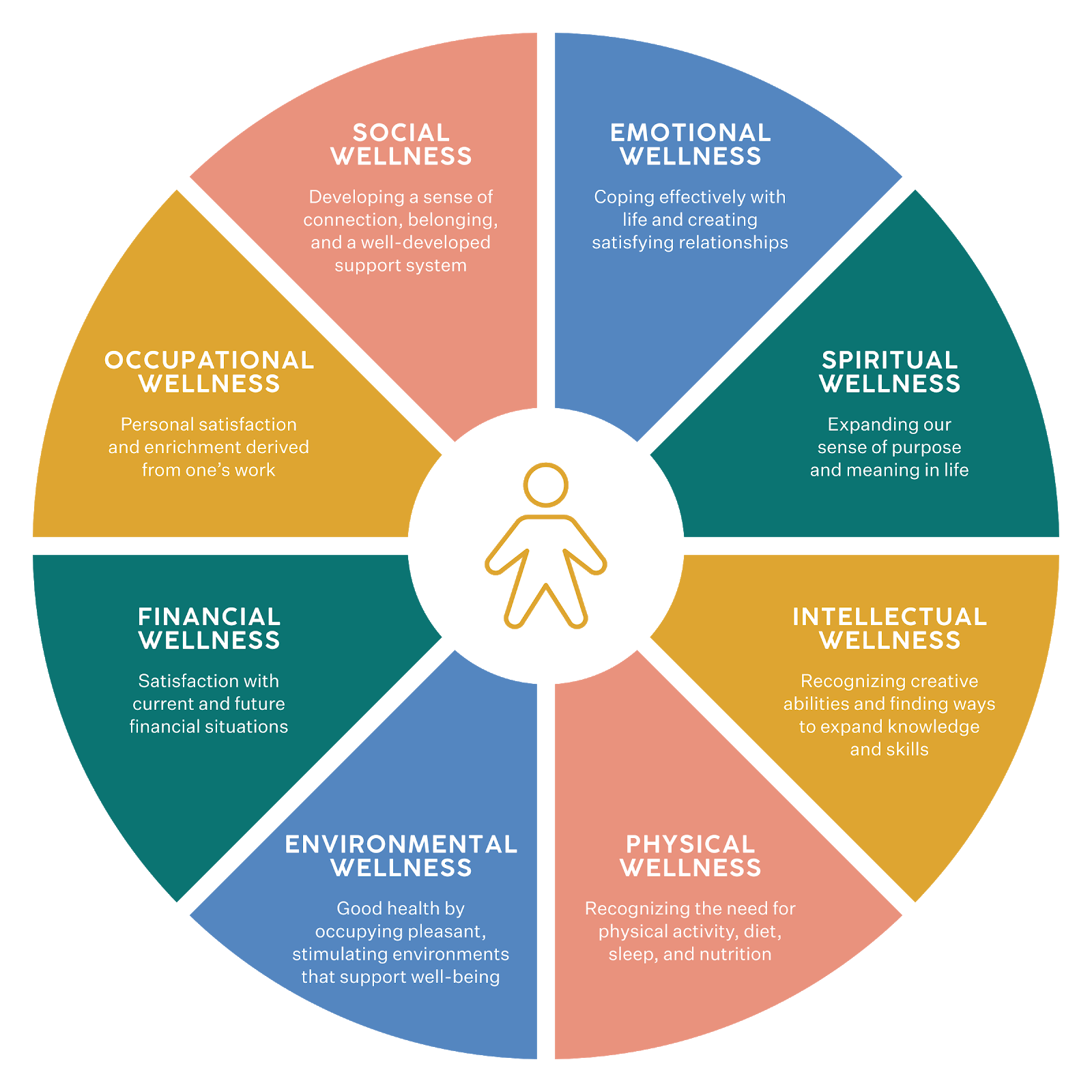Healthy eating or Orthorexia?
As Dietitians, we are trained to help people eat healthfully. But can eating healthy go too far? If so, what does that look like, and why does it then become UNhealthy? Let’s dive in.

General healthy eating recommendations involve eating enough servings of fruits and vegetables, staying hydrated, incorporating whole grains, lean protein, dairy foods, and healthy fats. It also involves being mindful of excess added sugars & saturated fats, and aiming to eat more home cooked meals and whole foods. You may have heard of the Dietary Guidelines for Americans, or read about healthy eating in your favorite magazine. So why would it ever be bad to try to eat healthfully, if focusing on healthy foods can improve our health? Eating healthy is never inherently bad, and often is a great thing! But, there can be too much of a good thing…if it becomes extreme, or starts to affect others aspects of your health, such as your mental health, social health, emotional health, or financial health, then it can actually negatively affect your well-being. Just because eating vegetables is good for our health, it doesn’t mean we should only eat fruits and vegetables. Balance matters!

Remember, health is holistic, it isn’t just what we eat or how often we move our bodies. Health & wellness involves mental health, emotional health, social health, etc. With orthorexia, the view of health becomes narrowed to focus ONLY on food intake, missing the mark on all the other areas that improve our health & well-being.

Although not formally recognized in the Diagnostic and Statistical Manual, Orthorexia is recognized as a type of eating disorder that’s on the rise (and likely will eventually be part of the DSM). Orthorexia involves an obsession with eating healthy, “clean’, or pure foods. Instead of the focus being on a certain body size or weight loss, like with Anorexia Nervosa or Bulimia Nervosa, Orthorexia focuses more on eating a specific way for ‘perfect health’. Steven Bratman, MD, a California doctor, coined the term Orthorexia in 1996.
“Clean eating” has gained popularity in the media over the last decade or two, and certainly can contribute to the development of Orthorexia in someone who may be at risk. This doesn’t mean everyone who tries to “eat clean” will develop Orthorexia, but it can often be the starting point for someone who tends to struggle with all-or-nothing thinking, depression, anxiety, perfectionism. OCD, or has a history of trauma or attachment issues.
Warning Signs & Symptoms of Orthorexia:
- An increase in concern about the health of ingredients or foods eaten or purchased
- Cutting out entire food groups without medical necessity (i.e. all sugar, all carbs, all dairy, all meat, all animal products)
- Compulsive checking of ingredient lists and nutrition labels
- Feeling morally superior due to eating behaviors
- An inability to eat anything but a narrow list of foods that are deemed ‘healthy’ or ‘pure’
- Unusual interest in the health of what others are eating
- Severe anxiety about how food is prepared
- Spending hours per day thinking about what food might be served at upcoming events
- Inability to be flexible, fears of eating out, and the necessity to bring own food places
- Showing high levels of distress when ‘safe’ or ‘healthy’ foods aren’t available
- Obsessive following of food and ‘healthy lifestyle’ blogs online/TikTok/Instagram
- Old hobbies/interests fall to the wayside as obsession with food takes over
- Restriction, skipping meals, and weight loss may or may not be present
- Body image concerns may or may not be present – focus is more on ‘health’
- Food obsession or food anxiety effects ability to work, engage in school, or have social relationships
With more research, we will hopefully be able to better understand orthorexia. Orthorexia may or may not overlap with other eating disorders, such as Anorexia or ARFID (Avoidant Restrictive Food Intake Disorder). Research has also shown that many individuals with orthorexia also have obsessive-compulsive disorder (OCD), or struggle with anxiety and perfectionism. We must offer client-centered care and look at all pieces of their eating disturbances.
Health consequences of Orthorexia:
Since Orthorexia involves restriction of certain foods and food groups, health consequences can be similar to Anorexia or Bulimia due to malnutrition. Consequences could involve any potential organ system; endocrine, gastrointestinal, cardiovascular, etc.
Effects of Orthorexia may involve:
- Problems with cognition
- Lowered immune system
- Nutritional deficiencies
- Osteoporosis
- Kidney failure
- Infertility
- Anxiety and stress
- Heart disease
- Malnutrition
- Social isolation
- Emotional instability
- Low sense of self-worth
Treatment for Orthorexia:
Since there needs to be more research before Orthorexia is a concrete eating disorder diagnosis, there is no current concrete type of treatment recommend. However, orthorexia is treatable, and typically involves similar therapy for other eating disorders, which involves working with a Registered Dietitian specializing in the treatment of eating disorders, a Psychotherapist, a Physician, etc. Treatment typically involves getting on a structured plan of eating, navigating food fears and beliefs, incorporating other coping skills, while facing fear foods and avoided foods in a strategic manner (and with support!) to ease anxiety, increase list of foods eaten, and normalize eating behaviors. It also may include weight restoration or a decrease/break from exercise if needed.
So remember, balanced healthy eating looks like:
- Having a balance of all food groups, including fun foods.
- Being flexible with food intake – you’re able to go out to pizza with friends last minute, and not have anxiety that you’re not eating ‘clean’
- spending some time thinking/planning what to eat, but it doesn’t take up your entire brain space
- prepping some foods in advance to make life easier, not having a rigid meal plan to stick to
- Aiming to cook more meals at home and incorporate whole foods, but without anxiety if you aren’t able to
- focusing on ADDITION of healthy foods, rather than subtraction of ‘unhealthy’ foods
- Enjoying healthy foods as part of an eating pattern AND having a healthy relationship to food
Note: Someone can have rigid, extensive, and intense food rules for themselves, but as long as they don’t significantly impact their well-being, those behaviors wouldn’t necessarily be considered orthorexic. Orthorexia nervosa requires both dieting behaviors and negative psychosocial consequences.
Orthorexia may look like:
- only eating “allowed” foods from certain foods groups, cooked in a certain way, or cutting out multiple food groups (i.e. no sugar, no oil, no gluten, no soy, no meat products, etc.)
- needing control over all meals and snacks, inability to be flexible
- extreme stress or anxiety when unable to eat foods deemed ‘healthy’ or ‘clean’
- obsession with healthy eating blogs, books, topics, etc.
- persistent guilt & shame eating foods that aren’t “clean” or “healthy”
- loss of period, poor mood, low energy, decreased sex drive, loss of previous hobbies & interests, social withdrawal, etc.
- follower of rigid diets like clean eating, paleo, plant-based, etc. as a way to disguise cutting out multiple food groups
- structuring one’s life around following their diet and food rules
- spending excessive time and money preparing food
- strong belief that you can control your current and future health by eating correctly (beyond what would generally be considered reasonable)
Recovery from Orthorexia is possible with support.
You deserve food freedom! Get in touch today to start your own individualized nutrition therapy with an Eating Disorder Dietitian.
Get My 20 Favorite Recipes!
Get ready for some yummy food with my 20 favorite recipes. Receive an instant download to inspire you on your journey to nourishment!
Follow me on Instagram!
@CAROLINEGREENNUTRITION

